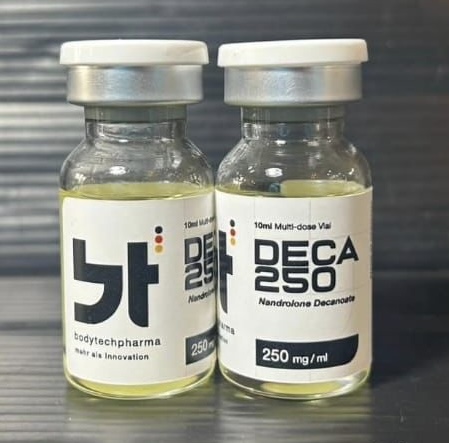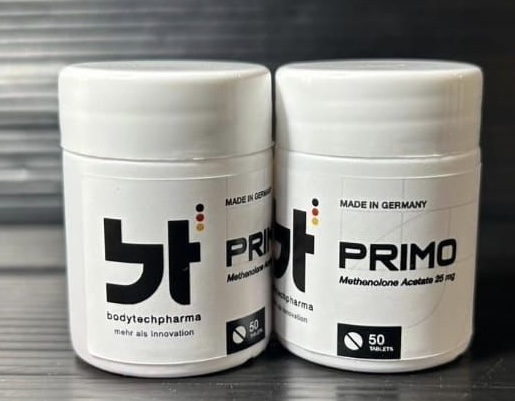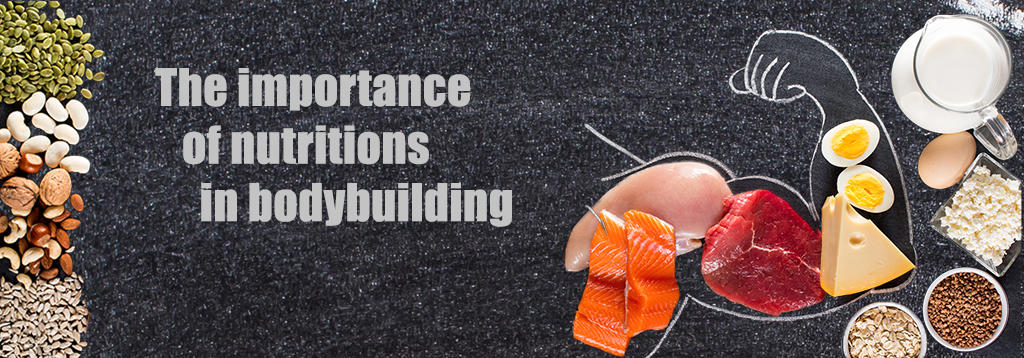
Have you been trying to bulk up lately? Have you been looking for an effective way to slim down? It seems nutrition plays a significant role in both of these goals. Your intake of calories will need to be much higher to bulk up. Bulking up can be done by eating more food or adding high-calorie supplements, such as protein shakes. Restricting your calorie intake is an optimal strategy if you plan to lose weight. You may want to eat less and exercise more. However, working out too hard without consuming sufficient calories can risk injuries.
Nutrition basics (What is nutrition?)
The basic definition of nutrition is the sum of things we are ingesting, absorbing, or otherwise consuming into our body to sustain life. Therefore, nutrition is key to achieving these goals for building muscle or losing weight. Several nutrients are needed for your body to reach its full potential and stay healthy. These include carbohydrates, proteins, fats, vitamins, minerals, water, fiber, etc. The following sections will discuss each nutrient in detail.
Bodybuilding is a sport that takes a lot of strength and discipline to be successful. However, the planet's strongest men have a few staples they live by regarding nutrition. The most important thing for bodybuilders is protein. A diet deficient in protein will result in muscle loss, devastating for athletes trying to improve their physique.
Nutrients: Proteins, Carbohydrates, Fats
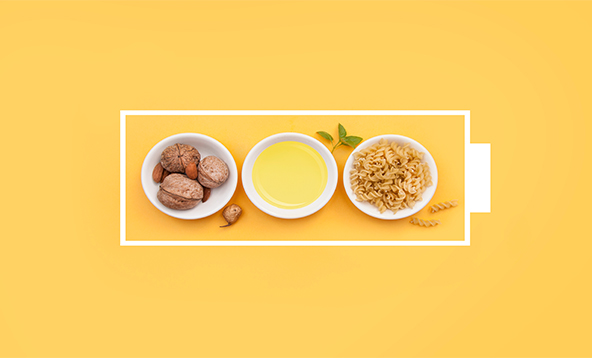
With the rise in popularity of bodybuilding, many people are turning to protein supplements for their nutrition needs. In addition, many bodybuilders feel that nutrients provide them with the fuel they need to build muscle mass.
Throughout history, humans have eaten whole foods to get the necessary nutrients. Still, in today's society, with busy schedules and fast-food restaurants on every corner, it's hard to find time for eating nutritiously. However, there is a way to eat well without spending hours preparing meals or going out to eat. Instead, you can make healthy snacks using fresh fruits and vegetables at home.
Proteins
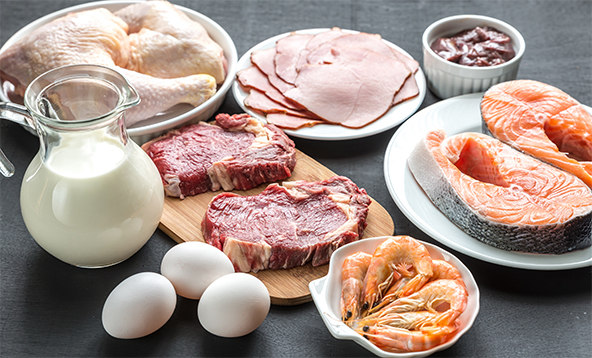
Proteins are one of the essential components in bodybuilding. Proper protein intake can differentiate between an average body and a champion body. On the other hand, excessive amounts of protein can lead to dehydration and strain on your liver. Therefore, it would be best to consume protein after working out instead of before because this will help with muscle growth and recovery. There are many kinds of proteins to select from:
Whey protein
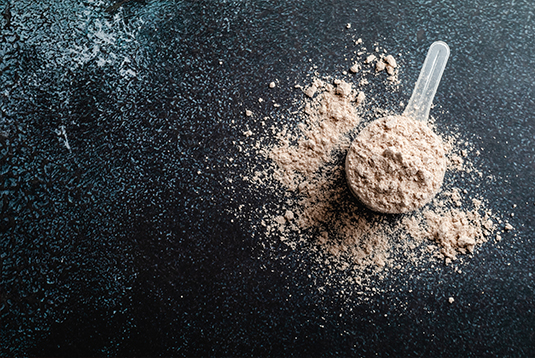
Protein is essential to bodybuilding. A body can consume whey protein as a significant source of protein. Bodybuilders use amino acids found in whey protein to help those trying to lose weight build more solid muscle tissue. This protein can also help provide fuel for workouts because it contains an excellent mix of branched-chain amino acids, which helps build lean mass while promoting fat loss.
Soy protein
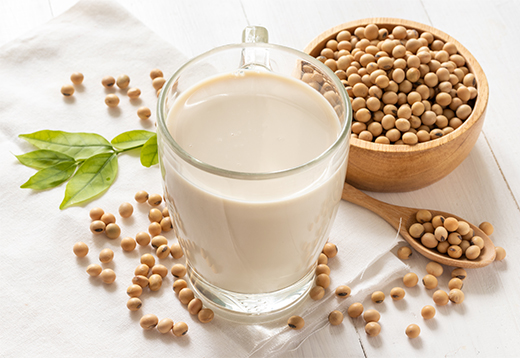
or any competitive athlete, it is crucial to have a balanced diet, including all necessary nutrients. However, this can be hard to do due to the limitations in our diet. Soy protein has been shown to provide many needed nutrients for athletes and bodybuilders, such as proteins and amino acids required for muscle development. It also contains a high amount of fiber which helps aid digestion and prevent constipation. In addition, soybeans contain lecithin, which aids with the absorption of fats into cells. Therefore, soybeans make a great source of nutrition for those who want to lose weight or gain muscles quickly. The only downside to using soy protein is its cost; however, many ways to get around this problem.
Egg protein
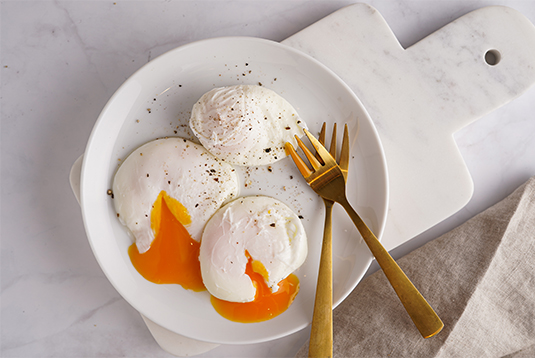
Bodybuilders are often asked what they eat to maintain muscle and lose fat. For many, their meals consist of meat or eggs, but lifting weights can be difficult without the right amount of protein. Researchers agree that the recommended dietary allowance for protein is 0.36 grams per pound of body weight. The average person needs about .56 grams per day, but this number can differ depending on age, gender, weight goals, and other health factors. Bodybuilders need more than 1 gram per kilogram of lean mass to build muscle. For example, a 200-pound man would require at least 40 grams of protein daily. Eggs supply an excellent source of high-quality proteins, with only one egg providing 6 grams of protein.
Rice protein
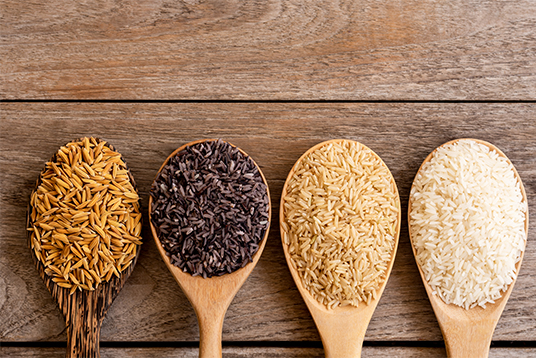
Many overlook the importance of the amount and type of protein in building muscles. There are many opinions on which types of protein to consume, but there is a consensus that bodybuilders or athletes should consume complete proteins from plants for optimal performance. Rice protein is an excellent source for this type of protein, easily added into everyday meals without changing the taste or texture. The amino acid profile associated with rice protein is like those found in whey protein isolates, which integrates well into a balanced diet. Rice protein contains lower fat than many other plant sources, such as soybeans. In addition, soybeans are easier to digest and absorb than animal-derived products.
Chicken protein
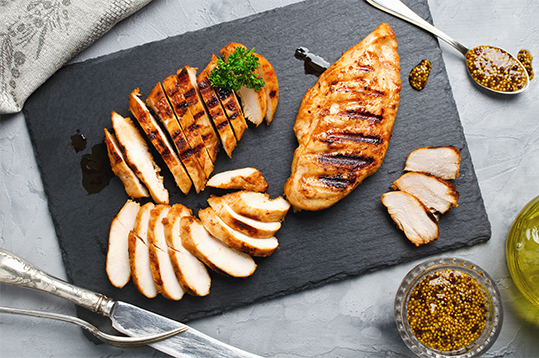
Anyone looking to build up their body needs to take the time to look into the different types of protein available. One type of protein is chicken protein, found in many pre-packaged foods and whole food options. Chicken meat is an excellent option for those looking at a budget-friendly way to get their daily protein value because it is low cost and high quality. You can find chicken breast meat on its own or with some sauce. Some sauces include tomato paste, barbecue sauce, honey mustard, etc. These all add flavor, but they do not have any added nutrients. If you want something more nutritious, try adding your favorite vegetables such as broccoli, spinach, mushrooms, peppers, onions, tomatoes, garlic, etc. Adding these extra vegetables will give you an extra boost of vitamins and minerals while also giving you a delicious meal.
Pea protein

Pea protein is a plant-based, plant-derived ingredient that has been on the rise as a healthy alternative to animal proteins. Pea protein contains an enzyme called amylase, which can break down carbohydrates and sugars to provide more fuel for muscles, meaning those who eat pea protein have an extra boost of energy every day. However, this doesn't mean that it is inherently good or bad for everyone; some individuals may not have the capacity to digest peas well, so they should avoid them if possible
Beef protein
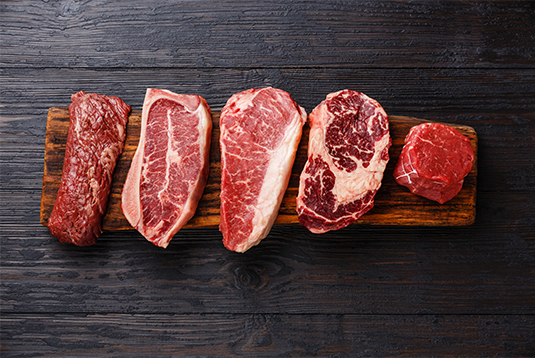
Bodybuilders are always looking for new protein sources to feed their muscles after breaking them down to rebuild them, which is why beef protein has become so popular. Beef protein contains many amino acids and other nutrients that help build muscle mass. So what's the best part of the bovine protein diet? You obtain health benefits without worrying about any harmful side effects! One of the benefits is because of how lean and healthy beef is. It's also a rich source of iron, zinc, B vitamins, vitamin D, selenium, phosphorus, potassium, magnesium, copper, manganese, calcium, phosphorous, sodium, and more.
Carbohydrates in bodybuilding
Carbohydrates play an essential component in the diet of ultimate athletes. They provide energy for workouts and can help with recovery time. Glycogen is the primary source of carbohydrates, which boosts muscle repair. For example, one serving of pasta is about 180-200 grams of carbohydrates. The recommended daily intake of carbs per day ranges from 45g to 60g, depending on your age and gender. A high carb diet will give you better results than low carb diets as long as they're balanced out by protein consumption. High carbohydrate diets also tend to be higher in fat content because it's easier to digest fats than proteins or starches. However, a high dietary fiber may reduce cholesterol levels and lower blood sugar levels.
Types of carbohydrate sources
The importance of nutrition is essential for any athlete, but even more so for bodybuilders. Bodybuilders are constantly looking to improve their physiques by either losing fat or gaining muscle. A key component in this process is adopting a strict diet that consists of the proper amount of proteins, carbohydrates, fats, minerals, and vitamins. Chemical structures classify the different types of carbohydrates, with sugar being one example. Some other types of carbohydrates are:
Simple Carbohydrates
All athletes need to have a well-balanced diet, but it is essential for bodybuilders looking to lose weight. These individuals want to maintain as much muscle mass as possible while shedding fat. The carbohydrates needed for this need to be simple sugars, not the long-chain carbohydrates; they don't provide enough energy for increasing growth hormone levels responsible for increasing lean mass. Simple carbs include glucose and Fructose. Glucose can come from fruit or milk products such as yogurt and cheese, whereas Fructose comes mainly from apples and pears. Both of these foods contain natural substances called phytochemicals that help prevent cancer.
Complex Carbohydrates
When dieting, carbohydrates are often the first thing to be cut from one's diet. But without cutting carbs too drastically, athletes can still achieve their goals and maintain a healthy lifestyle. Complex carbs come in various forms – bananas, oatmeal, potatoes – and provide a range of health benefits for those looking to lose weight or gain muscle. They also have an essential role in maintaining energy levels throughout the exercise. The body uses complex carbs for fuel during intense workouts because they take longer than simple sugars to digest. In addition, slow digestion of complex carbs allows enough recovery time of muscles and avoids fatigue before completing each workout set.
Sugars
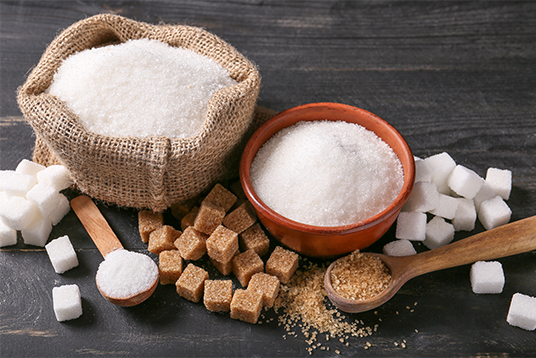
Sugar is terrible for your health and the enemy of bodybuilding. Unfortunately, sugar is a crucial component in many popular foods high in calories, promoting weight gain. Maintaining a healthy lifestyle entails avoiding sugar at all costs because it can lead to obesity, diabetes, heart problems, and other ailments. In addition, drinking sugary drinks like soda should be avoided since they contain artificial sweeteners, linking them with the cause of cancer. If you must drink something sugary, try drinking water instead of using sports drinks such as Gatorade.
Starches
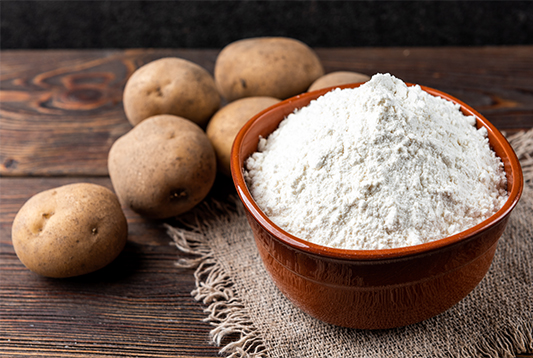
Most athletes and bodybuilders use carbohydrates for fuel, and starches are an excellent choice. They provide quick energy and are low-fat. Starches also contain a lot of B vitamins, like thiamin and riboflavin. These B vitamins play a vital role in converting food to energy, transforming fatty acids into energy, and breaking down carbs. Starch-rich foods are potatoes, rice, oats, quinoa, and whole-grain bread.
Fiber
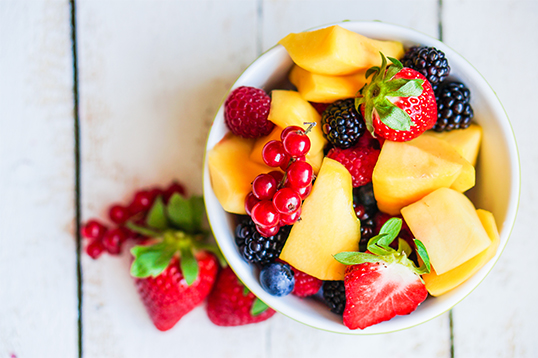
Bodybuilders ought to monitor their consumption of macronutrients, including fiber. Fiber helps with digestion by slowing down how quickly your stomach empties after eating. As a result, it can help you feel full longer, so it's easier to eat less at each meal. The highest-quality fiber is in plants, grains, vegetables, nuts, beans, and seeds. Unfortunately, most people don't get enough fiber from their diet because they tend not to consume many foods high in this nutrient.
Types of fats sources
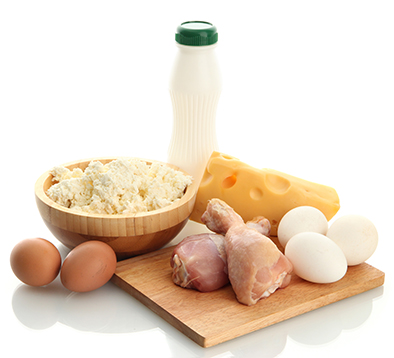
The bulk of our fat is a triglyceride, a type of fatty acid-containing three fatty acids attached to one glycerol molecule. We can break down fat sources into two categories: saturated and unsaturated. Animal-based products are a good source of unsaturated fatty acids, including meats, egg yolks, whole milk, butter, and cheese. Unsaturated fats are fats found in vegetable oils like olive oil and tropical oils like coconut oil. Both have different health benefits. For example, while both may raise cholesterol levels, some studies suggest that eating more saturated fats increases your risk for heart disease, whereas consuming more unsaturated fats lowers it. However, there's no clear evidence as to which type of fat is better or worse overall. Find below a list of some nutritious high-fat foods, regardless of whether or not the goal is to improve the body or build a healthier diet:
Omega-3s
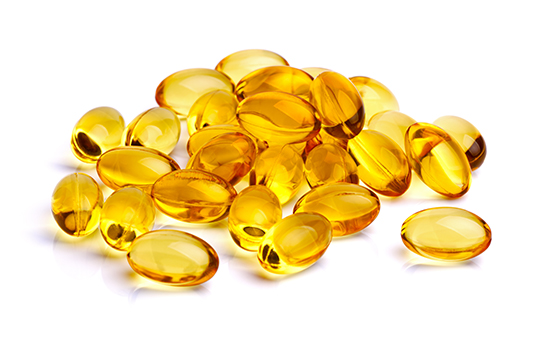
Since the human body cannot produce Omega-3s on its own, your diet must contain some form of this nutrient. A lack of Omega-3s can lead to inflammation, skin problems, and mood swings. Research has shown that Omega-3s can decrease blood pressure and cholesterol levels, reduce the risk of heart disease, and improve brain function. it also has the other following benefits:
- A Good Source of Protein
- Increases Endurance
- Enhances Muscle Growth and Repair
- Increases Metabolism
- Promotes Healthy Heart and Brain Function
- Improves Eye Health
- Significantly less muscle soreness
- More endurance during workouts
- Better mood
- Faster recovery time after a workout
- Decreased risk of injury
- Increased muscle definition
Flaxseed Oil
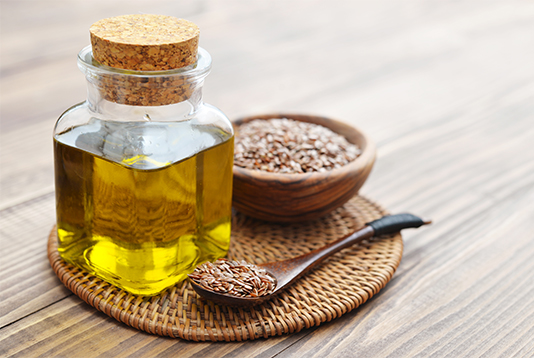
Flaxseed oil is an excellent source of Omega 3 fatty acids. Flaxseed oil is a hypoallergenic and gluten-free diet supplement suitable for patients with celiac disease. It has a mild taste that cools burns when applied topically. It also helps with inflammatory conditions like arthritis, asthma, psoriasis, and lupus erythematosus. In addition, the omega-3 content in flaxseeds makes them one of the best sources of essential fats to help maintain healthy skin and hair and promote overall health.
Avocado
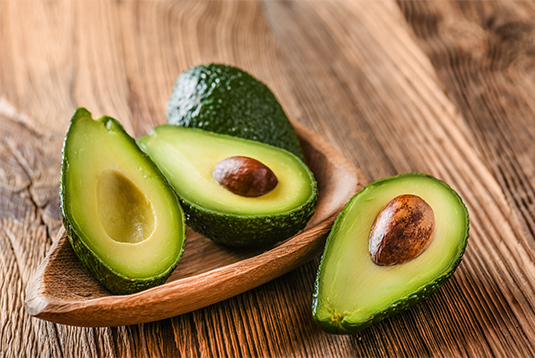
Avocado is said to be a healthy fruit that is rich in fat. Building muscle can be challenging, even for athletes who are well trained. A recent study found that avocado consumption can help boost endurance and improve physique. The study concluded that avocados are an excellent source of potassium, which allows the muscles to recover and other nutrients such as magnesium, vitamin E, fiber, carotenoids, and flavonoids. Avocados also contain monounsaturated fatty acids like oleic acid, linoleic acid, and palmitic acid. Each of these three fatty acids effectively reduces inflammation and supports cardiovascular health. They may also play a role in lowering cholesterol levels.
Olives

The humble olive is the perfect food to keep your bodybuilding diet balanced. Olives have been a staple of Mediterranean cuisine for centuries, and it's no surprise why. With adequate vitamins A and E, olives include an antioxidant-rich dietary treat. Vitamin E has many health benefits. Such benefits include supporting heart health, boosting immunity, protecting against cancer, and promoting brain development. In addition, the antioxidant properties found in olives can help protect you from free radical damage that could lead to premature aging or even cell death.
Grass-fed Butter
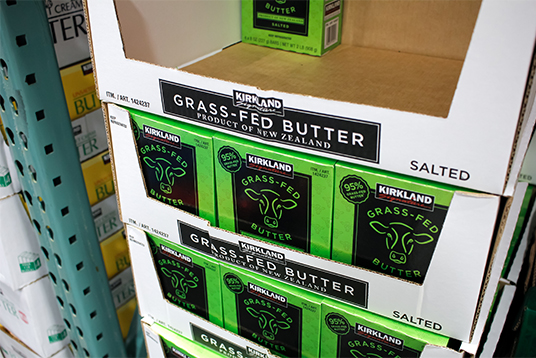
A growing number of people are turning to grass-fed butter to get better nutrition for their bodybuilding needs. Butter is an essential part of the diet because it is a rich source of nutrients such as calcium, vitamin D, and riboflavin. Furthermore, grass-fed butter is healthier than other butter due to its higher fat content, making it more satisfying. Nutritions rich in omega-3 fatty acids can also decrease inflammation in your body. Consuming grass-fed butter will help you with these advantages while also assisting you in achieving your muscle growth goals.
Coconut Oil

Coconut oil is a natural dietary fuel that bodybuilders often overlook. Coconut oil is high in fat and calories, but it also contains many suitable compounds for the body. These oils are called medium-chain triglycerides (MCTs). MCTs help boost metabolism, increase energy expenditure, and prevent hunger cravings. In addition, MCTs have the effect of lowering harmful cholesterol levels. In addition, coconut oil has displayed the capacity to improve insulin sensitivity and lower blood sugar levels. It can even aid weight loss efforts because of its ability to burn more calories than other fats. The greatest thing about using coconut oil rather than conventional cooking methods is that it helps to avoid contaminants.
Conclusion
Bodybuilding is rarely successful without the proper nutrition it requires. Many people don't think about it because they are not fitness experts, but their performance in the gym is mainly dependent on the foods they eat. A well-balanced diet provides the body with the nutrients to grow and maintain itself. Individual factors, vitamins, proteins, carbohydrates, and fats are just some examples of non-negotiable things that are worth considering when developing a personalized diet.
Is nutrition essential for muscle growth and recovery?
Nutrition is an essential aspect of fitness, and bodybuilding is no exception. However, athletes must combine nutrition with exercise to ensure muscle growth and recovery. The human body needs protein, carbohydrates, fats, fiber, vitamins, minerals, and fluids. Without proper nutrition, these components would not come together to work as they should, resulting in slower or nonexistent muscle growth and potentially resulting in health issues. Adequate nutrition also helps the body recover from workouts by providing the energy needed for muscles to repair themselves after a workout.
Proper nutrition offers benefits such as increased strength and muscle size.
Bodybuilding has become a mainstream and popular form of recreational and competitive sport. Many people participate in this activity, and many factors go into its success, including diet. However, many people fail to realize that nutrition is just as important as weight training for the bodybuilder. It is frequently overlooked or not given sufficient consideration.
A proper diet is paramount during bodybuilding because the nutrients consumed every day will support muscle growth and repair. The best way to ensure that you are getting all your nutritional needs met while on a bodybuilding program is by consuming high-quality protein sources. Such protein sources are meat, fish, eggs, dairy products, soybeans, nuts, seeds, beans, lentils, tofu, etc. See our description of all these protein sources at the beginning of this article.
A nutritious diet is essential to success in bodybuilding. Without it, there will be no results.
The physical makeup of any bodybuilder depends mainly on a nutritious diet. Without it, there will be no success in bodybuilding. Good nutrition relies on a large number of vegetables and fruits. They're low in fat and fiber. In addition, vegetables contain Vitamin C, which helps the immune system perform better. Fruits like bananas are high in potassium which helps with muscle growth. In addition, vitamins D, E, and K help your skin stay healthier during workouts.

